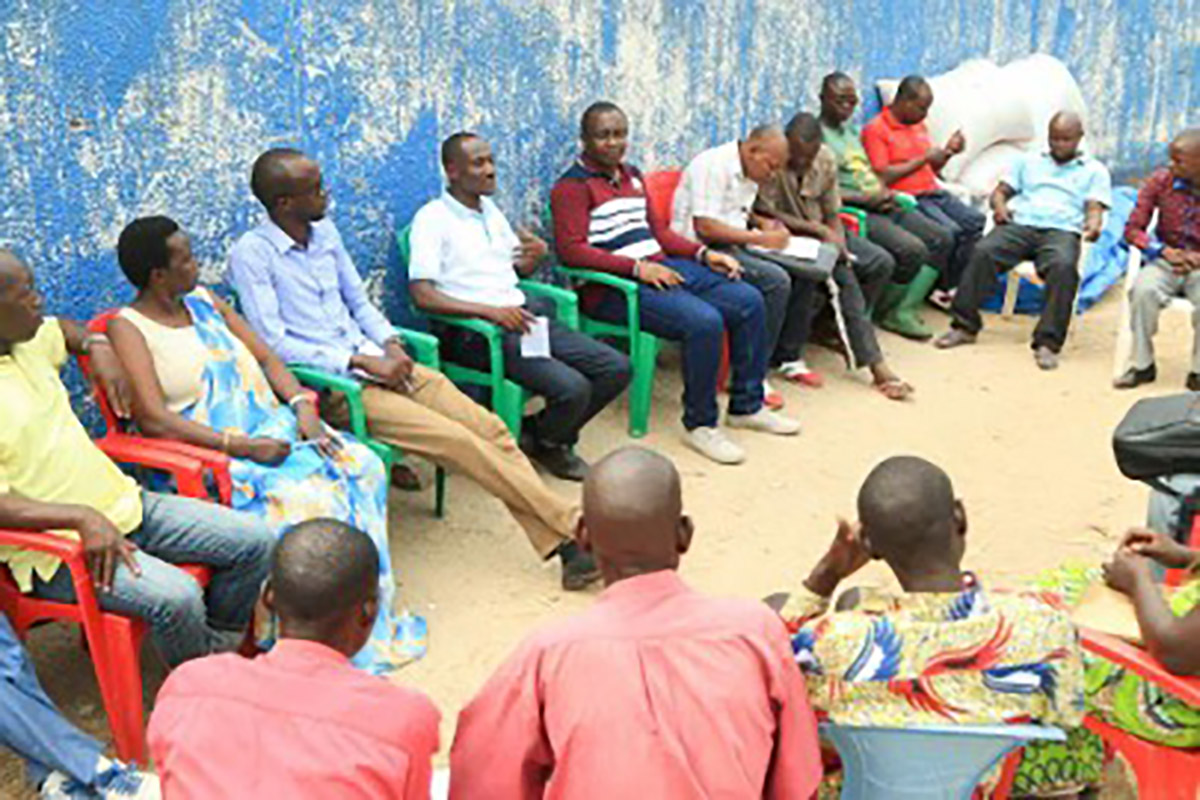Why Community Initiatives Fail
February 23by Alphonse Akouyu
Recently, I was invited to reflect on ‘Why Community Initiatives Fail’ with a diverse group of youth who are nursing dreams of becoming game changers in their communities.
Harboring any ambition of trying to bring about hope and transformation in any place which can be associated with the word ‘community’, is extremely complicated.
The most basic definition of development which I learnt about during my days at the Glocal Master’s in International Development Program at the Hebrew University of Jerusalem is – development is simply taking people from a place called A, which is where they are, to a place called B which is where they want to be.
In our world today, we all want our communities to be places of joy, empowerment, love and happiness. Each and every one of us wants to be that person who discovers a magic solution to that problem which has plagued the communities for years.
Community Development practitioners are people who feel inspired by the words of the Estonian National Anthem: ”Mu Isamaa Mu Onn Ja Room” which simply means ’My Native Land My Pride, My Joy’. I strongly believe that any place or group you find yourself in is your community. As such, we often have that urge to be torchbearers of good news in our respective communities. In some cases, this urge has led to life changing initiatives which have moved communities to higher heights, meanwhile in others the urge has led to failure.
So, the big question then is why community initiatives fail.
Several factors account for this, however for them to succeed, the way we view the initiative matters. Therefore, it is not about me or us, it is about the community.
As leaders, our role is to take on the mindset of the community and determine what success looks like. And as we bring our different areas of expertise to the table, we put ourselves at the service of the community, knowing fully well that it is not about us, it about communal growth.
This builds in us a sense of humility where we don’t see ourselves as indispensable, but as a part of the system which brings the change we seek.
Lack of Systems and Processes
Nobody sets out to fail in anything they do, but in my experience working with many community development initiatives in my home country Cameroon, or in Burundi, Niger, Burkina Faso and Northern Nigeria where I did a mission with IOM, one of the key reasons why community initiatives fail is due to lack of systems and processes.
In most cases, the initiator of the idea was Mr X who stays in the community and succeeds in getting the buy in of a few influential stakeholders in the community. Mr X becomes the Alpha and Omega. When he is around things move, when he is not around things are stagnant. There is a popular saying in French ‘L’etat ce moi – The State is me’. Everything rotates around Mr X. We need to have strong systems which can function with or without the Mr Xs of this world. This requires plenty of investment in building a development machinery where we all are simply contributors to a common goal – the growth of our community.
It is extremely important to distinguish between personal initiatives and community initiatives and this leads us to the second reason why these initiatives fail.
There is a difference between an initiative which Mr X founded to help the community and an initiative which belongs to the community. There is a very thin line between the two on paper, but in practice the gap is so wide. Community initiatives are organic in nature, so it could be a problem of water, and the community decides to come together and dig a bore hole to solve the water crisis. This means everyone in the community has a seat at the decision making table and can walk up to the leadership of the initiative and request details about the project. In the case of Mr X, the borehole he dug is his private business, even if it is solving a community problem.
We must therefore distinguish between community initiatives and private initiatives tackling a community challenge.
Once we agree that an initiative is a community initiative and not a private initiative founded by Mr X, then we have to deal with the million-dollar problem – leadership of the initiative. Everyone is welcome at the decision-making table of a community initiative and to ask questions, however we need to have leaders managing the initiative. Too many wonderful community initiatives which were supposed to change the lives of millions have died infant deaths or were not able to be born because of disagreement over who the leader should be or who should be amongst the members of the Leadership committee. This is such a complex issue especially in our African context, because of the diverse nature of our communities and the need for all stakeholders to be represented in the leadership committee.
I agree that all groups should be represented, but again having a large leadership committee because of the need to have each interest group represented, can sometimes be inefficient as only a few people end up working. In the long term, those people might just become Mr X. I firmly believe in having a leadership committee which can do the job, selfless in nature and system oriented through setting up of a mechanism to ensure that the initiative can function in their absence.
In most cases, the issue of representation comes up because existing leadership often fails to cater for the interest of a particular group. This is where we need community leaders who are willing to work for the community and cater for everybody’s interests. Therefore, they do not do it for themselves but for the community. They are not afraid of accountability because their intention is the progress of the community. Leadership and accountability seem to be very big issues for many community initiatives. Unfortunately, past leaders did a great deal of injustice to communal goods and therefore upcoming leaders must ensure that they pass the accountability test, in order to build confidence and trust amongst followers.
Community development initiatives are part and parcel of our daily lives. We can’t run away from them. They are part of the society we live in and whether we like it or not, at some point we must identify ourselves with a community initiative. We all mean well for our communities, and in the course of trying to do our best, we unknowingly cause damage and harm to our people and the communities we are trying to develop.
This takes me to my last point which is the fact that many community initiatives fail because we don’t want to review what has been done.
We just want to move forward with this change making business of ours, without taking time to reflect on what has gone well and what needs to change. Albert Einstein once said ‘Insanity is doing the same thing over and over again and expecting different results’. Too often the fear of accepting failure accounts for why we community development practitioners decide to keep on going. The fear of failure is in itself the beginning of failure. We must be ready to accept that we got it wrong, review, evaluate and make the necessary changes to move forward and if like the current Liverpool Manager, we feel we are running out of energy then it is time to leave the stage for others to come onboard and move forward with the initiative.
Failure is part and parcel of our lives as humans. Someone has said it is not about failing but what happens next after failure. Others have said failure is a sign of progress. When it comes to community development, we shouldn’t be scared of failure, we should be glad it happened and use the opportunity to learn, grow and build stronger and better initiatives which will develop our respective communities.






